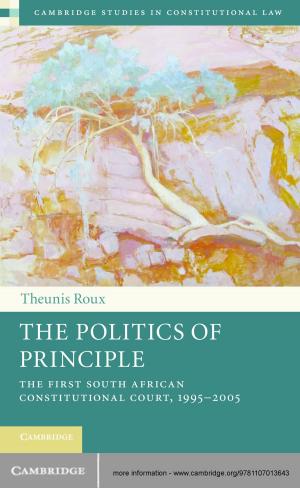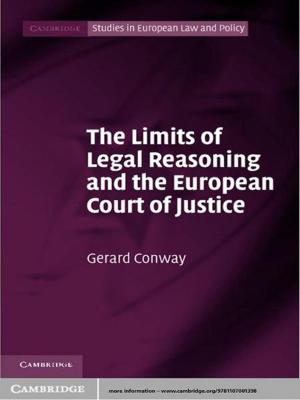Peirce and the Threat of Nominalism
Nonfiction, Religion & Spirituality, Philosophy, Epistemology, Modern| Author: | Paul Forster | ISBN: | 9781139063036 |
| Publisher: | Cambridge University Press | Publication: | March 17, 2011 |
| Imprint: | Cambridge University Press | Language: | English |
| Author: | Paul Forster |
| ISBN: | 9781139063036 |
| Publisher: | Cambridge University Press |
| Publication: | March 17, 2011 |
| Imprint: | Cambridge University Press |
| Language: | English |
Charles Peirce, the founder of pragmatism, was a thinker of extraordinary depth and range - he wrote on philosophy, mathematics, psychology, physics, logic, phenomenology, semiotics, religion and ethics - but his writings are difficult and fragmentary. This book provides a clear and comprehensive explanation of Peirce's thought. His philosophy is presented as a systematic response to 'nominalism', the philosophy which he most despised and which he regarded as the underpinning of the dominant philosophical worldview of his time. The book explains Peirce's challenge to nominalism as a theory of meaning and shows its implications for his views of knowledge, truth, the nature of reality, and ethics. It will be essential reading both for Peirce scholars and for those new to his work.
Charles Peirce, the founder of pragmatism, was a thinker of extraordinary depth and range - he wrote on philosophy, mathematics, psychology, physics, logic, phenomenology, semiotics, religion and ethics - but his writings are difficult and fragmentary. This book provides a clear and comprehensive explanation of Peirce's thought. His philosophy is presented as a systematic response to 'nominalism', the philosophy which he most despised and which he regarded as the underpinning of the dominant philosophical worldview of his time. The book explains Peirce's challenge to nominalism as a theory of meaning and shows its implications for his views of knowledge, truth, the nature of reality, and ethics. It will be essential reading both for Peirce scholars and for those new to his work.















